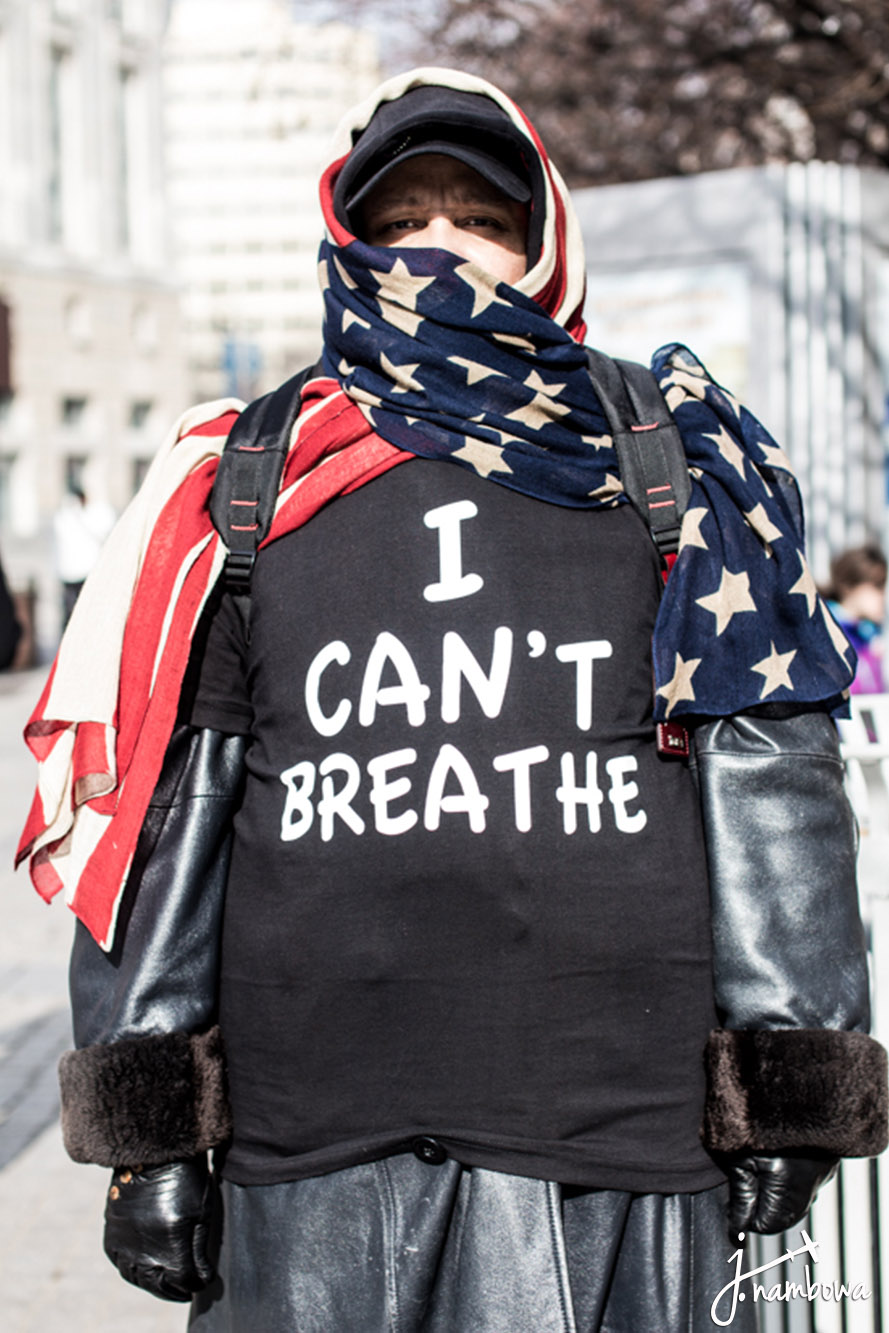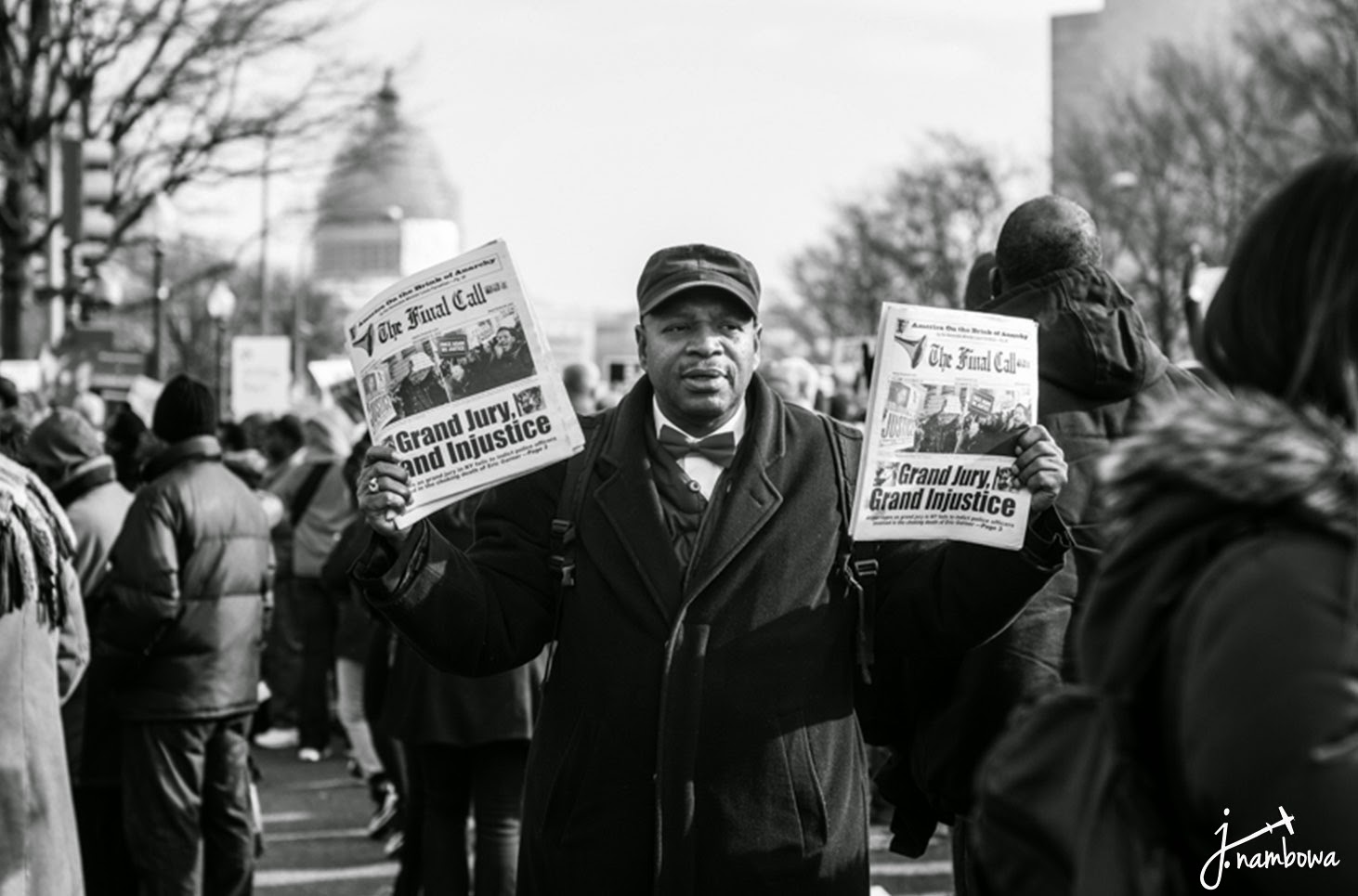Ramblings on Ferguson
Today marks the beginning of my fourth month officially living in the United States, following a 6.5 year hiatus during which I called Kusatsu, Japan, London, England, Dassa-Zoume, Benin, and Rome, Italy home. After my initial move abroad in 2008, the idea of moving back home was complex. I left a very good life, where at the ripe old age of 21/22 I was making a great salary and living in my very own riverfront condo, the American dream, some would say. Often when questioned why I left or why I hesitated to move back, I relayed that my conscious was grappling with living in the US as a black person and having a life that would be considered successful in the stereotypical sense, while people that look like me suffer in the country and suffer simply because they look like me.
Today marks one week since the nation was told to “accept” the Ferguson Grand Jury decision which was nauseatingly delivered by a prosecutor whom we all knew, in August, would not bring charges. We had hope that things would be different, but we knew they wouldn’t be. It has taken me one week to put my thoughts in long form, one week to get my thoughts to sit still long enough to spit out well over 140 characters and do more than retweet and share articles and videos on Facebook.
Last Monday evening I sat home with my roommate and watched and began to process the decision. Through text and twitter, I shared my frustrations and heard the frustrations of others. Though I was unable to sleep more than four hours that night and I woke up in tears at 6am the following morning, I was comforted that the universe held me in her arms and my perfectly timed vacation allowed me to travel 5,000 miles to a place where I could escape the new reality of the country I live in. While in the KLM’s business class lounge in Amsterdam’s Schiphol airport, I noted all of the foreign newspapers that saw this as front page news. I saw Ferguson headlines in English, Spanish, French, Dutch and German headlines. Tamir Rice, who we lost at the very young age of 12 will never see Paris but his story made it to the front page of Le Monde.
I spent the next five days in Copenhagen, Denmark, a very homogeneously white country. As an avid traveler, a black traveler, I am always aware of how I am received and perceived and my heart was warmed by the wonderfully kind people of Copenhagen. Not once was I made to feel aware of my race. Not once did someone default to English without me first speaking in English, they spoke to me in Danish. Not once did I feel or see anyone staring at me on the street, or anywhere else. And to add icing to the metaphorical cake, I had a great conversation about the situation with a Danish bartender, who, blessed with an admirable ignorance, could not wrap his mind around racism in America.
Prior to the Ferguson Decision, I had been struggling with my move back to the US and my year-long lease commitment. Many evenings and brunches with friends were filled with discussions of race and the role that it plays in our lives and this society. I felt/feel as if I am a second-class citizen in a country that I was born in. A country of which I am a national, my passport proves that, though it is not enough to prevent the discrimination I face at the whim of immigration officers. I was once asked how long I intended to stay in the US even though he held my American passport in his hands. Beyond the discrimination I am subjected to during travel, I often think about the time that a Miami police officer pulled a gun on me, assuming that I was breaking into the South Beach apartment of my friend. When I questioned the police officer, once the situation was a bit calmer, he informed me, with a shrug, “we shoot first, ask questions last.” This is a scene that plays out in my mind more often than I wish, realizing that that could’ve been the end of me.
Growing up as a Ugandan in American, I was largely insulated from discussions of race. My parents never brought it up. I have plenty of black American friends that have told me that they grew up in homes where they were told “you have to work twice as hard because you are black.” This is followed by excessive scholarly success, ivy league educations, a collection of degrees and prestigious titles at Fortune 500 companies. What also comes with this is code switching and being deferential towards white people. The black middle class often engages in othering of working class and poor blacks, because of their coveted educational attainment and careers. They have found a way to benefit from and fit into the system and somehow feel safe. I recently read an interesting article by a faculty member of Vassar college who uses her ID to reduce the harassment by police. But why do we have to do this? Why do I have to recite my resume to prove that I am worthy to sit at the hypothetical table?
group that I belong to, that are part of the problem. Those that go to work
every day carrying themselves in a “professional manner” which was prescribed
to us by the white supremicist system that we live in. Code switching and dressed
in our J. Crew and Brooks Brothers uniforms. There are some people in this
group that tout black-on-black crime statistics when there are complaints of
police brutality. There are some in this group who blame the victims, noting
the clothing that they wear or lack of educational attainment. There are many
in this group who would be considered “not like them [e.g. the larger black
community that we are all taught to by the media and society at large]” by
non-black people. There are many people in this group who make white people
feel comfortable, this group, who tend to befriend white people, are the ones
who make white people exclaim, “but I have black friends.” It is this group who
can afford to live in good neighborhoods, where they are sometimes considered
to be suspicious, but upon opening their mouths can quickly calm fears of their
neighbors by demonstrating that they are one of the good ones. It is this group
of people that are often ignored in high-end shops, but watch as the saleswomen
reduces her scorn once an AMEX is pulled out. It is this group of people who
show up in spaces that are dominated by whites, even if there is only one of
them, that make white people feel like this country is post racial.
Now what if this group of people stopped being deferential to white people. What if this group of people did not lead with the fact that they went to an Ivy League university? What if this group of people did not move into the recently gentrified neighborhoods, but stayed in all black communities? What if this group of people left Fortune 500 companies and started their own firms, black firms? What if this group of people brought up the suffering of black people at work with their white colleagues just as they do with their black friends? What if this group of people did not suppress their passion when speaking at work out of fear of being called “aggressive” or “angry”? What if this group of people wore hoodies, because they are comfortable and practical rather than thinking twice about it? What if this group of people verbally acknowledged every micro-aggression tossed at them daily?
I do not pretend to know the solution. I do not even know how to process going back to my regular life because I feel like now everything has shifted. There is no more business as usual. I ask these questions because as a middle class black woman, I do not feel a looming threat of police violence. In fact, I have gotten in the face of police officers when they are clearly in the wrong, because I know more lawyers than I can count who would be quite happy to represent me, should anything go awry. And because the fact is, whether we acknowledge it or not, police officers are terrorizing poor and working class black communities, not all black people. That is not to say that middle class/upper middle class blacks do not have run-ins with the police and deal with regular bouts of racism, but they tend to not escalate to violence because this groups knows exactly what to say to calm the fears of the police officer.
I recognize my privilege as an educated black person in America, it is not as awesome as white privilege but still a form of privilege nonetheless. When a Delta employee clearly discriminated against me by assuming I wasn’t a priority passenger because of my outward appearance I called and spoke with a customer service manager who rectified the situation. I know that I have the agency to do these sorts of things because I have received a certain education and experiences that make people feel that I am worthy of respect and should not feel discriminated against, it is that tricky intersection of race and class. But moving forward, how do we help change the narrative? Do we stop being deferential to white people? Do we stop leaning on our educations, careers and command of the English language as somehow making us worthy of respect? Do we pack up our things and move abroad? Or do we continue living our lives as normal, discussing race over brunch, on which we can afford to spend $60. Continue traveling the globe and comparing our passport stamps. Continue looking for “new” neighborhoods in new cities to explore. Continue teaching our children that if they work hard and get an education and dress and speak a certain a way, they will make it in America. Continue reaping the material fruits of our success, while praying that one day things will change, through no effort of our own.
What next?



